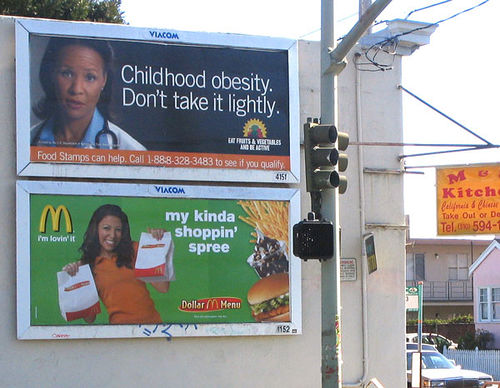Disillusionment with democratic governance is common to both elite and citizen actors
Citizen disengagement from politics is a problem across much of the democratic world, with the public often not only disinterested, but actively hostile to politicians and policymakers. But is this growing cynicism limited to the public? Or are political and policy elites equally culpable of cynicism about the democratic process? Jack Corbett and John Boswell argue that this is the case, and that different ways of understanding this cynicism have much to teach us.

Credit: Vinne Lauria, CC BY SA 2.0
Democratic disillusionment and citizen disaffection with the way we are governed has become one of the most widely observable and worrying trends in contemporary politics. There is now an enormous body of work that tries to unpack why this is the case (you can find a review here). The common stereotype is of citizens being disheartened and disenchanted with the group of self-serving professional policy actors who monopolise the apex of government decision-making. Entirely missing from this discussion, however, is any sense or admission that many policy elites are equally cynical about what democratic government can and should deliver.
Our recent research on obesity policy in the UK and Australia brings the cynicism of elite actors into sharp relief. Elite disaffection is perhaps best highlighted by the contrast between the below satirical skit on Australian obesity policy, and practitioners response. At the start of the first episode of The Hollowmen, a political satire set in the fictional Central Policy Unit in Canberra, Australia, the unit’s leader enters the office to urgent chatter. Discussion centres on the Prime Minister’s appearance on a talk radio show, during which he had expressed earnest concern about skyrocketing rates of obesity and promised the electorate urgent action on this pressing public health matter.
The episode charts the unit’s efforts to follow through on this promise. Their ambitions for major policy innovation quickly founder as the complex science and politics of the issue dawn on them. Their efforts instead culminate in Prime Minister donning a carrot costume as part of an obesity awareness campaign, against the backdrop of a comprehensive, time-consuming and, most importantly, conflict neutralising process of stakeholder engagement.
In real life, around the time the episode screened on Australian television, new Prime Minister Kevin Rudd and Minister for Health and Ageing, Nicola Roxon, expressed earnest concern about skyrocketing rates of obesity and promised the electorate urgent action on this pressing public health matter. Their stated ambitions for major policy reform, however, foundered in the face of the complex science and politics of the issue. Their efforts instead culminated in a public awareness campaign fronted by an animated blue balloon man, against the backdrop of multiple comprehensive, time-consuming and, by common perception, conflict neutralising processes of stakeholder engagement.
But this is not just a case of life imitating art. The key advisor to the show’s writer was a prominent public health advocate, and its cynical prediction a product of her own fatalism. She reflected:
I said to someone that we finally reached the end of that episode with the blue man … Thank God that’s over. The relief. I was just waiting for it to finish. My life has just played out. The Hollowmen did it in 40 minutes. It took me 4 years.
As this example shows, for policy elites, cynicism comes in three forms. They argue that:
- The process is inert
- The process is compromised
- The process is ‘a show’
So, our research reveals a group of policy actors who are not, like members of the lay public, disaffected with the way policy processes operate because they do not fathom them. Rather, they are disaffected because they understand all too well how the policy-making ‘game’ is played. Indeed, aside from oblique references in satirical shows like The Hollowmen, these views are often not obviously apparent front stage – many take great care to express a positive view in public forums and hearings – but backstage, once the cameras and microphones are off, their cynicism is palpable; they complain about the motivations of the other actors involved, the openness of the decision-making process and the prospects of their participation making any substantive difference.
The cynicism we uncover among policy actors is, of course, broadly applicable to many professions. All jobs breed their share of discontents, and we might expect that the élites involved in policy deliberation on obesity would be no different. From this perspective, the significance of our research is that it punctures the popular image of élite collusion.
Having made that point, however, what this case also reveals is that although most actors are cynical about the ‘game’, small but significant numbers are no longer willing to stoically carry on playing it; the move to undermine, subvert or opt out of the practices and institutions of deliberative governance represents the most intriguing finding from this study.
The anti-politics literature has two answers to this problem. The first is that these views represent a growing gap between citizen and elite expectations about what democratic politics can and should deliver. From this perspective, the system is broken and in urgent need of reform. There are lots of views on what form this could take – from electoral engineering to deliberative democracy – but they key point is that change is required to regain legitimacy.
The second is that democratic politics requires of elites a certain stoicism in the face of repeated and often insurmountable policy challenges. This view of policy-making echoes Weber’s old idea of politics as a ‘slow boring of hard boards’. From this perspective, expectations need to be tempered before things get out of hand.
We conclude that both perspectives have something to tell us about contemporary elite cynicism. The ‘stoic’ response tells us much about what is constant about the problems and challenges that policy makers face when seeking to initiate change. The ‘gap’ response tells us more about what is different and highlights how new modes of networked governance have altered the ways actors see and understand their roles.
The most fruitful reaction, we suggest, will involve a fusion of these two perspectives. Much as our account unveils about actors’ experiences and perceptions of recently emerged forms of deliberative governance, any evolution will involve reinterpreting and reasserting the stoicism required of the people who take part. Seen in this light, new practices prompted by the unwillingness of actors to maintain the status quo will not solve complex governance problems like obesity once-and-for-all. They will simply strive to better produce contingent agreement around the process and confer greater legitimacy on outcomes, at least for a time.
Sketching out what any such practices or institutions might look like is beyond our scope here. What we can do, though, is highlight the importance of considering élite views in this enterprise. So far the loudest calls for democratic renewal have focused on citizen perspectives. The lesson from our research is that disillusionment with democratic governance is common to both élite and citizen actors, and that this should be reflected in future work not just on anti-politics as a phenomenon, but on associated efforts to renew democratic practices. Only by appreciating both views and the links between them – for which our research provides an important initial insight – can we gain a more holistic understanding of contemporary anti-political trends, and the implications for the future of democratic government.
—
Note: this post represents the views of the author and not those of Democratic Audit or the LSE. Please read our comments policy before posting.
—
 Jack Corbett is a Research Fellow at the Griffith Business School, Australia.
Jack Corbett is a Research Fellow at the Griffith Business School, Australia.
John Boswell is a Lecturer in Politics at the University of Southampton. His interests include democratic governance, health policy, and interpretive research methods. Read more about him here and read more of his published work here.






 Democratic Audit's core funding is provided by the Joseph Rowntree Charitable Trust. Additional funding is provided by the London School of Economics.
Democratic Audit's core funding is provided by the Joseph Rowntree Charitable Trust. Additional funding is provided by the London School of Economics.
Cynical about democratic governance? So too are politicians as @jack_corbett456 & @Boswell_JC argue https://t.co/IcrKWE2CjT @democraticaudit
Disillusionment with democratic governance is common to both elite and citizen actors. My blog with @Boswell_JC https://t.co/nqgPO0IKxJ
An interesting and important post MT @democraticaudit: Are elites as disillusioned with #democracy as the public? https://t.co/4Edts647b5
Are elites just as disillusioned with democracy as the public? https://t.co/SN4xWzz33e
Disillusionment with democracy is common to both elite and citizen actors https://t.co/GJoj5uy7zJ
Disillusionment with democratic governance is common to both elite and citizen actors https://t.co/WEUbQiuQEK
Disillusionment with democratic governance is common to both elite and citizen actors https://t.co/Ef7mWO34AG
“@PJDunleavy: Disillusionment with democratic governance https://t.co/0JthpQfPBa” I’ve used the mentioned Hollowmen ep in teaching a lot!